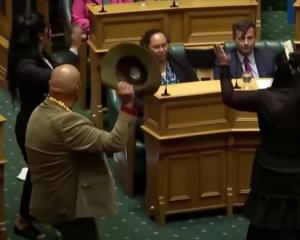Reserve Bank deputy governor Grant Spencer delivered a strong message on New Zealand's housing imbalances last week which the Government would be foolish to ignore.
In an extraordinary speech, Mr Spencer made it clear the problems in Auckland's housing market needed addressing - urgently.
Since late 2014, housing market imbalances have become more accentuated, particularly in Auckland where the supply shortage is the greatest, and house prices are particularly stretched, having increased threefold since the start of 2002.
New Zealand is one of the few advanced economies to not have had a major house price correction in the past 45 years. According to Mr Spencer, a downward correction in house prices in New Zealand could be prompted by a range of potential shocks, such as rising global interest rates, or a downturn in the global economy and financial markets.
Looking around the world, possibilities exist for several of his warnings to come to pass. China, New Zealand's largest trading partner, is experiencing slower economic growth. The International Monetary Fund estimates that the world's second-largest economy will grow 6.8% in 2015 before slowing to 6.3% in 2016. Growth last year in China was 7.4%.
Across the Tasman, Australia - New Zealand's second-largest export market - was showing signs of an economic meltdown with the Reserve Bank of Australia considering cutting its official lending rate to 2% next month in an effort to stimulate the productive economy. As in New Zealand, parts of Australia are experiencing a housing bubble with affordable housing increasingly out of reach for first-home buyers.
The difference between the Australian and New Zealand official cash rates will only encourage speculators to enter this domestic market looking for interest rates they can get nowhere else in the Western world.
In Europe, the central bank is busy issuing money to try to stimulate lending growth, while keeping its rates at a record low. But in the United States, and perhaps Japan, interest rates may soon rise causing a disparate set of economic circumstances which can only hurt, not help, New Zealand's economy.
With 60% of its lending in residential mortgages, the New Zealand banking system could be put under severe pressure in such a downturn.
Housing is part of the Government's main platform so far this year and is sure to feature in the Budget on May 21. But has it done enough? The signs are that any progress the Government is making as far as easing housing shortages are being held up by planning and other restrictions.
Mr Spencer says policies to ease the supply constraints must be the main priority but are unlikely to yield quick results.
It has become obvious to most people New Zealand is in the throes of a two-step housing market where Auckland's troubles are impacting on the rest of the country. In provincial New Zealand, there is no need for lending restrictions. Planning permission, albeit slow in some areas, can be obtained for subdivisions and there is land available for building a reasonably priced new home for people new to the market.
The proposed Resource Management Act reforms have the potential to significantly improve the planning and resource consenting process but doubts have arisen whether the Government has a majority to push the reforms through Parliament after losing the Northland by-election to New Zealand First leader Winston Peters.
Prime Minister John Key seems in denial about New Zealand's housing situation. Housing Minister Nick Smith has embarked on a roadshow promoting the Government's KiwiSaver HomeStart package to help young New Zealanders put together a deposit and get a mortgage for their first home.
Hopefully, Dr Smith will listen to the concerns New Zealanders have about the housing market and make an effort to implement changes.












